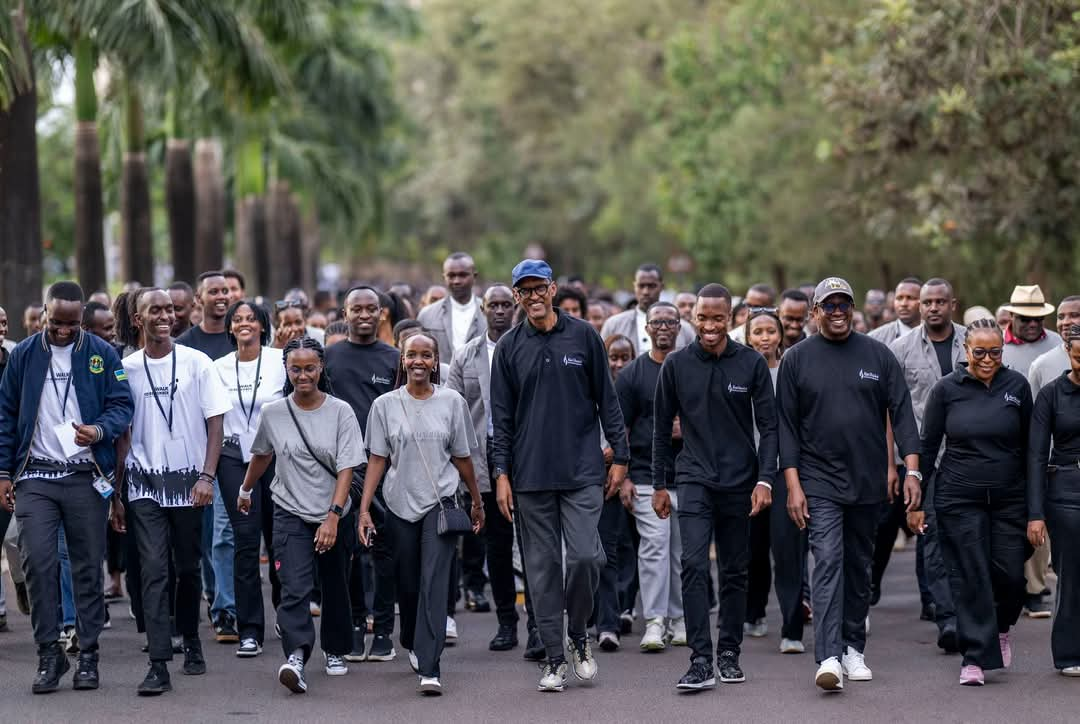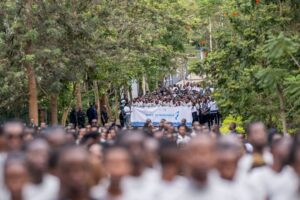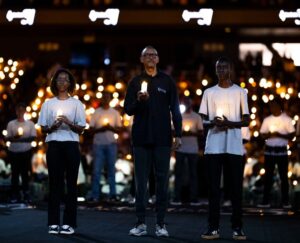News
Nation United in Remembrance: Rwanda Begins Kwibuka31 with Solemn Walk and Vigil
President Paul Kagame joined over 2,000 Rwandan youth in a poignant “Walk to Remember” on Sunday, marking the commencement of the 31st commemoration of the 1994 Genocide Against the Tutsi, known as Kwibuka31.
The procession, which began at the Gasabo District Headquarters and culminated at the BK Arena, served as a powerful testament to the nation’s enduring commitment to remembering the victims and honouring the survivors of the horrific events that unfolded three decades ago.
The “Walk to Remember” is an annual tradition, symbolising the journey of resilience and unity that Rwanda has undertaken since the genocide. This year’s event, particularly significant as it marks 31 years, underscored the importance of intergenerational dialogue and the role of youth in preserving the memory of the genocide.
Following the walk, President Kagame participated in a solemn candle-lighting ceremony at the BK Arena, officially initiating the Night Vigil. The vigil, a central part of Kwibuka, featured deeply moving testimonies from survivors, interspersed with musical performances, all designed to honour the memory of the more than one million victims who perished during the 100-day genocide.
It must be recalled that the 1994 Genocide Against the Tutsi was a meticulously planned and brutally executed campaign of extermination. From April 7th to mid-July 1994, Hutu extremists systematically murdered members of the Tutsi minority, as well as moderate Hutus who opposed the violence.
The genocide was a direct result of decades of ethnic division and political manipulation, exacerbated by the power vacuum created after the death of President Juvenal Habyarimana.
The United Nations estimates that between 500,000 and 1,000,000 Rwandans were killed during the 100 days. Human Rights Watch and other organizations have documented the systematic nature of the killings, highlighting the involvement of government officials, militia groups, and ordinary citizens.
The international community’s response to the genocide was widely criticized for its inaction and delayed intervention. The UN peacekeeping mission, UNAMIR, was severely under-resourced and hampered by a restrictive mandate.
Since the genocide, Rwanda has made remarkable strides in rebuilding its society. The government has prioritized national unity, reconciliation, and justice through initiatives such as the Gacaca courts, community-based tribunals designed to expedite the prosecution of genocide perpetrators.
Kwibuka, meaning “remember” in Kinyarwanda, is a period of national mourning and reflection. It serves as a time for Rwandans to honour the victims, support survivors, and educate future generations about the dangers of genocide ideology. The annual commemoration reinforces the nation’s commitment to “Never Again.”
The active participation of Rwandan youth in events like the “Walk to Remember” is crucial for ensuring that the lessons of the genocide are not forgotten. Educating the next generation about the past is essential for building a future free from hatred and violence.
Meanwhile, President Kagame’s participation in Kwibuka31 underscores the government’s commitment to remembrance and its ongoing efforts to foster a unified and reconciled nation. The events of the day served as a powerful reminder of the importance of vigilance against all forms of discrimination and the enduring strength of the Rwandan people in the face of unimaginable tragedy.
Comments





















